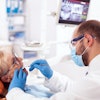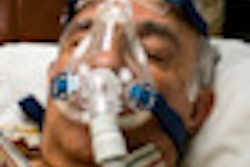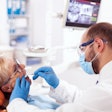A new study suggests that some heart attack patients may actually benefit from mild to moderate sleep-disordered breathing such as sleep apnea (American Journal of Respiratory and Critical Care Medicine, January 1, 2013, Vol. 187:1, pp. 90-98).
The researchers from Technion-Israel Institute of Technology and Rambam Medical Center found that apnea and other types of sleep-disordered breathing can boost the numbers and functions of rare cells that help to repair the heart and build new blood vessels. The findings could help predict which patients are at a greater health risk after a heart attack, and may even suggest ways to rebuild damaged heart tissue.
Sleep-disordered breathing occurs in 5% to 10% of the general adult population, and is extremely common in patients with cardiovascular diseases -- between 40% and 60%. Many studies have shown that sleep apnea is a risk factor for everything from high blood pressure to chronic heart failure, the researchers noted.
For this study, the researchers studied 40 male patients -- a mix of healthy sleepers and those with sleep-disordered breathing -- who had had a heart attack just a few days earlier. Blood samples drawn from these patients revealed that the sleep-disordered breathing patients had markedly higher levels of endothelial progenitor cells (EPCs) -- which give rise to new blood vessels and repair the injured heart -- than the healthy sleepers. They also had higher levels of other growth-promoting proteins and immune cells that stimulate blood vessel production.
The researchers were able to trigger a similar increase in vessel-building activity in vascular cells taken from a second set of 12 healthy men and women by withholding oxygen from the cells for short periods. The results point at the possibility that inducing mild-moderate intermittent hypoxia may have beneficial effects, they noted.



















